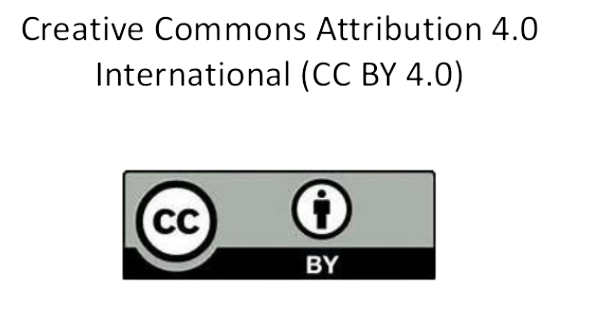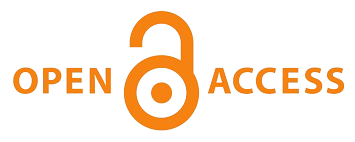Peningkatan Pemahaman Materi Fiqih Siswa tentang Hal-Hal yang Membatalkan Salat melalui Pembelajaran Berbasis Masalah
DOI:
https://doi.org/10.35719/jptpd.v1i2.24Keywords:
Pemahaman Materi, Fiqih, Hal-Hal yang Membatalkan Salat, Pembelajaran Berbasis Masalah, Sumber Satap, ProbolinggoAbstract
Penelitian Tindakan Kelas ini bertujuan untuk meningkatkan pemahaman siswa kelas VII di Sekolah Menengah Pertama Negeri (SMPN) 5 Sumber Satap Kabupaten Probolinggo terkait materi Fiqih tentang hal-hal yang membatalkan salat melalui pendekatan Pembelajaran Berbasis Masalah (PBL). Penelitian dilaksanakan dalam dua siklus yang masing-masing terdiri dari tahap perencanaan, pelaksanaan, observasi, dan refleksi. Subjek penelitian melibatkan 18 siswa kelas VII yang terbagi dalam kelompok kecil untuk melakukan diskusi dan analisis kasus terkait materi. Hasil penelitian menunjukkan peningkatan yang signifikan dalam keterlibatan aktif siswa, kemampuan analisis, serta pemahaman konsep tentang materi Fiqih setelah penerapan PBL. Skor rata-rata pemahaman siswa meningkat dari 66,67% di siklus pertama menjadi 91,67% di siklus kedua, menunjukkan efektivitas PBL dalam pembelajaran. Kesimpulannya, pendekatan PBL terbukti efektif meningkatkan pemahaman siswa terhadap materi Fiqih, serta keterampilan berpikir kritis dan kolaborasi. Disarankan agar guru menerapkan metode serupa dalam pembelajaran Fiqih lainnya untuk memperkaya pengalaman belajar siswa.
This Classroom Action Research aims to enhance seventh-grade students' understanding at SMPN 5 Sumber Satap, Kabupaten Probolinggo, regarding Fiqh, specifically on aspects that invalidate prayer, through Problem-Based Learning (PBL). The research was conducted in two cycles, each comprising planning, implementation, observation, and reflection stages. The study involved 18 seventh-grade students, grouped to discuss and analyze relevant cases. Findings indicate a significant improvement in active engagement, analytical skills, and conceptual understanding of the Fiqh material post-PBL implementation. The average student comprehension score increased from 66.67% in the first cycle to 91.67% in the second cycle, demonstrating the effectiveness of PBL in learning. In conclusion, the PBL approach proved effective in enhancing students' understanding of Fiqh concepts, along with fostering critical thinking and collaboration skills. It is recommended that teachers apply similar methods in other Fiqh topics to enrich students’ learning experiences.
References
Almulla, M. A. (2020). The effectiveness of the project-based learning (PBL) approach as a way to engage students in learning. Sage Open, 10(3), 2158244020938702. https://doi.org/10.1177/2158244020938702
Campillo-Ferrer, J. M., & Miralles-Martínez, P. (2021). Effectiveness of the flipped classroom model on students’ self-reported motivation and learning during the COVID-19 pandemic. Humanities and Social Sciences Communications, 8(1), 1-9. https://doi.org/10.1057/s41599-021-00860-4
Crisianita, S., & Mandasari, B. (2022). The Use of Small-Group Discussion to Improve Students’ speaking Skill. Journal of English Language Teaching and Learning, 3(1), 61-66. https://doi.org/10.33365/jeltl.v3i1.1680
Gunawan, W., Farichah, S. D., & Halim, A. (2024). Peningkatan Hasil Belajar Siswa pada Materi Keragaman melalui Model Problem Based Learning di Kelas IV SDN Sawahkulon Purwakarta. Journal of Pedagocical and Teacher Professional Development, 1(1), 134–146. Retrieved from https://jptpd.uinkhas.ac.id/index.php/jptpd/article/view/27
Harahap, F., Nasution, N. E. A., & Manurung, B. (2019). The Effect of Blended Learning on Student's Learning Achievement and Science Process Skills in Plant Tissue Culture Course. International Journal of Instruction, 12(1), 521-538. https://doi.org/10.29333/iji.2019.12134a
Hidayah, E. N., Farihah, U., & Nasution, N. E. A. (2022). The Effect of STEM integrated with Project Based Learning (PJBL) Model of Respiratory System Material to Students Activities and Learning Outcomes. Proceeding Cgant Unej. https://doi.org/cgantjma.v2i2.64
Hmelo-Silver, C. E. (2004). Problem-Based Learning: What and How Do Students Learn?. Educational Psychology Review, 16(3), 235-266. https://doi.org/10.1023/B:EDPR.0000034022.16470.f3
Hussain, S., Ahmad, N., & Khurshid, M. (2020). The effectiveness of problem-based learning in improving students' understanding of science concepts: A case study. Journal of Educational Research and Practice, 10(2), 12-23. https://doi.org/10.1234/jerp.v10i2.1234
Kwangmuang, P., Jarutkamolpong, S., Sangboonraung, W., & Daungtod, S. (2021). The development of learning innovation to enhance higher order thinking skills for students in Thailand junior high schools. Heliyon, 7(6). https://doi.org/10.1016/j.heliyon.2021.e07309
Liu, X., Peng, M. Y. P., Anser, M. K., Chong, W. L., & Lin, B. (2020). Key teacher attitudes for sustainable development of student employability by social cognitive career theory: the mediating roles of self-efficacy and problem-based learning. Frontiers in psychology, 11, 1945. https://doi.org/10.3389/fpsyg.2020.01945
Matitaputty, J. K., & Sopacua, J. (2023). The Effectiveness of the Learning Cycle 5E Learning Model in an Effort to Improve Learning Outcomes of History. JIM: Jurnal Ilmiah Mahasiswa Pendidikan Sejarah, 8(2), 740-747. https://doi.org/10.24815/jimps.v8i2.24816
Nasution, N.E.A., Al Muhdhar, M.H.I., Sari, M.S., & Balqis. (2023). Relationship between Critical and Creative Thinking Skills and Learning Achievement in Biology with Reference to Educational Level and Gender. Journal of Turkish Science Education, 20(1), 66-83. https://doi.org/10.36681/tused.2023.005
Seibert, S. A. (2021). Problem-based learning: A strategy to foster generation Z's critical thinking and perseverance. Teaching and Learning in Nursing, 16(1), 85-88. https://doi.org/10.1016/j.teln.2020.09.002
Yustina, Y., Syafii, W., & Vebrianto, R. (2020). The effects of blended learning and project-based learning on pre-service biology teachers’ creative thinking through online learning in the covid-19 pandemic. Jurnal Pendidikan IPA Indonesia, 9(3), 408-420. https://doi.org/10.15294/jpii.v9i3.24706
Zhang, W. (2019). The role of problem-based learning in promoting student engagement and learning outcomes: A meta-analysis. Educational Psychology Review, 31(4), 753-776. https://doi.org/10.1007/s10648-019-09430-5
Downloads
Published
How to Cite
Issue
Section
License
Copyright (c) 2025 Journal of Pedagogical and Teacher Professional Development

This work is licensed under a Creative Commons Attribution 4.0 International License.











